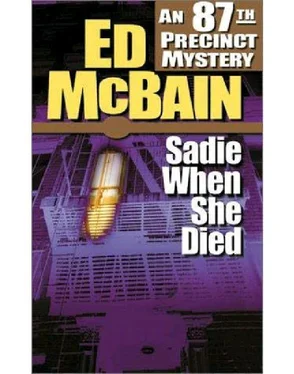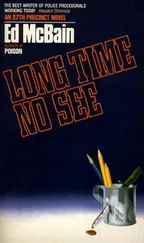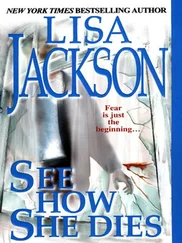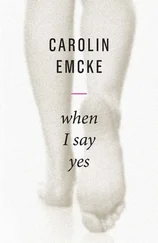Ed McBain - Sadie When She Died
Здесь есть возможность читать онлайн «Ed McBain - Sadie When She Died» весь текст электронной книги совершенно бесплатно (целиком полную версию без сокращений). В некоторых случаях можно слушать аудио, скачать через торрент в формате fb2 и присутствует краткое содержание. Жанр: Полицейский детектив, на английском языке. Описание произведения, (предисловие) а так же отзывы посетителей доступны на портале библиотеки ЛибКат.
- Название:Sadie When She Died
- Автор:
- Жанр:
- Год:неизвестен
- ISBN:нет данных
- Рейтинг книги:4 / 5. Голосов: 1
-
Избранное:Добавить в избранное
- Отзывы:
-
Ваша оценка:
- 80
- 1
- 2
- 3
- 4
- 5
Sadie When She Died: краткое содержание, описание и аннотация
Предлагаем к чтению аннотацию, описание, краткое содержание или предисловие (зависит от того, что написал сам автор книги «Sadie When She Died»). Если вы не нашли необходимую информацию о книге — напишите в комментариях, мы постараемся отыскать её.
Sadie When She Died — читать онлайн бесплатно полную книгу (весь текст) целиком
Ниже представлен текст книги, разбитый по страницам. Система сохранения места последней прочитанной страницы, позволяет с удобством читать онлайн бесплатно книгу «Sadie When She Died», без необходимости каждый раз заново искать на чём Вы остановились. Поставьте закладку, и сможете в любой момент перейти на страницу, на которой закончили чтение.
Интервал:
Закладка:
“Never.”
“It doesn’t happen to be your knife, does it?” Carella asked.
“It does not.”
“Did your wife say anything to you when you entered the bedroom?”
“My wife was dead when I entered the bedroom.”
“You’re sure of that?”
“I’m positive of it.”
“All right, Mr. Fletcher,” Byrnes said abruptly. “You want to wait outside, please?”
“Certainly,” Fletcher said, and rose, and left the room. The three detectives stood in silence for a respectable number of minutes. Then Byrnes said, “What do you think?”
“I think he did it,” Carella said.
“What makes you think so?”
“Let me revise that.”
“Go ahead, revise it.”
“I think he could have done it.”
“Even with all those signs of a burglary?”
“ Especially with all those signs.”
“Spell it out, Steve.”
“He could have come home, found his wife stabbed—but not fatally—and finished her off by yanking the knife across her belly. The M.E.’s report says that death was probably instantaneous, either caused by severance of the abdominal aorta, or reflex shock, or both. Fletcher had four minutes when all he needed was maybe four seconds.”
“It’s possible,” Meyer said.
“Or maybe I just don’t like the son of a bitch,” Carella added.
“Let’s see what the lab comes up with,” Byrnes said.
There were good fingerprints on the kitchen window sash, and on the silver drawer of the dining-room sideboard. There were good prints on some of the pieces of silver scattered on the floor near the smashed bedroom window. More important, although most of the prints on the handle of the switchblade knife were smeared, some of them were very good indeed. All of the prints matched; they had all been left by the same person.
Gerald Fletcher graciously allowed the police to take his fingerprints, which were then compared with those Marshall Davies had sent over from the police laboratory. The fingerprints on the window, the drawer, the silverware, and the knife did not match Gerald Fletcher’s.
Which didn’t mean a damn thing if he had been wearing his gloves when he finished her off.
2
O n Monday morning, the sky above the River Harb was a cloudless blue. In Silvermine Park, young mothers were already pushing baby buggies, eager to take advantage of the unexpected December sunshine. The air was cold and sharp, but the sun was brilliant and it transformed the streets bordering the river into what they must have looked like at the turn of the century. A tugboat hooted, a gull shrieked and swooped low over the water, a woman tucked a blanket up under her baby’s chin and cooed to him gently. Near the park railing, a patrolman stood with his hands behind his back, and idly stared out over the sun-dappled river.
Upstairs, in the second-floor rear apartment of 721 Silvermine Oval, a chalked outline on the bedroom floor was the only evidence that a woman had lain there in death the night before. Carella and Kling sidestepped the outline and moved to the shattered window. The lab boys had carefully lifted, packaged, and labeled the shards and slivers of glass, on the assumption that whoever had jumped through the window might have left bloodstains or clothing threads behind. Carella looked through the gaping irregular hole at the narrow alleyway below. There was a distance of perhaps twelve feet between this building and the one across from it. Conceivably, the intruder could have leaped across the shaftway, caught the windowsill on the opposite wall, and then boosted himself up into the apartment there. But this would have required premeditation and calculation, and if a person is going to make a trapeze leap for a windowsill, he doesn’t dive through a closed window in haste and panic. The apartment across the way would have to be checked, of course; but the more probable likelihood was that the intruder had fallen to the pavement below.
“That’s a long drop,” Kling said, peering over Carella’s shoulder.
“How far do you figure?”
“Thirty feet. At least.”
“Got to break a leg taking a fall like that.”
“Maybe the guy’s an acrobat.”
“You think he went through the window head first?”
“How else?”
“He might have broken the glass out first, and then gone through.”
“If he was about to go to all that trouble, why didn’t he just open the damn thing?”
“Well, let’s take a look,” Carella said.
They examined the latch, and they examined the sash.
“Okay to touch this?” Kling asked.
“Yeah, they’re through with it.”
Kling grabbed both handles on the window frame and pulled up on them. “Tough one,” he said.
“Try it again.”
Kling tugged again. “I think it’s stuck.”
“Probably painted shut,” Carella said.
“Maybe he did try to open it. Maybe he smashed it only when he realized it was stuck.”
“Yeah,” Carella said. “And in a big hurry, too. Fletcher was opening the front door, maybe already in the apartment by then.”
“The guy probably swung his bag . . .”
“What bag?”
“Must’ve had a bag or something with him, don’t you think? To put the loot in?”
“Probably. Though he couldn’t have been too experienced.”
“What do you mean?”
“No gloves. Left prints all over the place. Got to be a beginner.”
“Even so, he’d have carried a bag. That’s probably what he smashed the window with. Which might explain why there was silverware on the floor. He could’ve taken a wild swing when he realized the window was stuck, and maybe some of the stuff fell out of the bag.”
“Yeah, maybe,” Carella said.
“Then he probably climbed through the hole and dropped down feet first. That makes more sense than just diving through the thing, doesn’t it? In fact, what he could’ve done, Steve, was drop the bag down first . . .”
“If he had a bag.”
“Every burglar in the world has a bag. Even beginners.”
“Well, maybe.”
“Well, if he had a bag, he could’ve dropped it down into the alley there, and then climbed out and hung from the sill before he jumped, you know what I mean? To make it a shorter distance.”
“I don’t know if he had all that much time, Bert. Fletcher must’ve been in the apartment and heading for the bedroom by then.”
“Did Fletcher say anything about glass breaking? About hearing glass?”
“I don’t remember asking him.”
“We’ll have to ask him,” Kling said.
“Why? What difference does it make?”
“I don’t know,” Kling said, and shrugged. “But if the guy was still in the aparment when Fletcher came in . . .”
“Yeah?”
“Well, that cuts it very close, doesn’t it?”
“He must’ve been here, Bert. He had to hear that front door opening. Otherwise, he’d have taken his good sweet time and gone out the kitchen window and down the fire escape, the way he’d come.”
“Yeah, that’s right.” Kling nodded reflectively. “Fletcher’s lucky,” he said. “The guy could just as easily have waited and stabbed him, too.”
“Let’s take a look at that alley,” Carella said.
The woman looking through the ground-floor window saw only two big men in overcoats, poking around on the alley floor. Both men were hatless. One of them had brown hair and slanty Chinese eyes. The other one looked younger but no less menacing, a big blond tough with hardly nothing but peach fuzz on his face, the better to eat you, Grandma. She immediately went to the telephone and called the police.
In the alleyway, unaware of the woman who peered out at them from between the slats of her venetian blinds, Carella and Kling studied the concrete pavement, and then looked up at the shattered second-floor window of the Fletcher apartment.
Читать дальшеИнтервал:
Закладка:
Похожие книги на «Sadie When She Died»
Представляем Вашему вниманию похожие книги на «Sadie When She Died» списком для выбора. Мы отобрали схожую по названию и смыслу литературу в надежде предоставить читателям больше вариантов отыскать новые, интересные, ещё непрочитанные произведения.
Обсуждение, отзывы о книге «Sadie When She Died» и просто собственные мнения читателей. Оставьте ваши комментарии, напишите, что Вы думаете о произведении, его смысле или главных героях. Укажите что конкретно понравилось, а что нет, и почему Вы так считаете.












